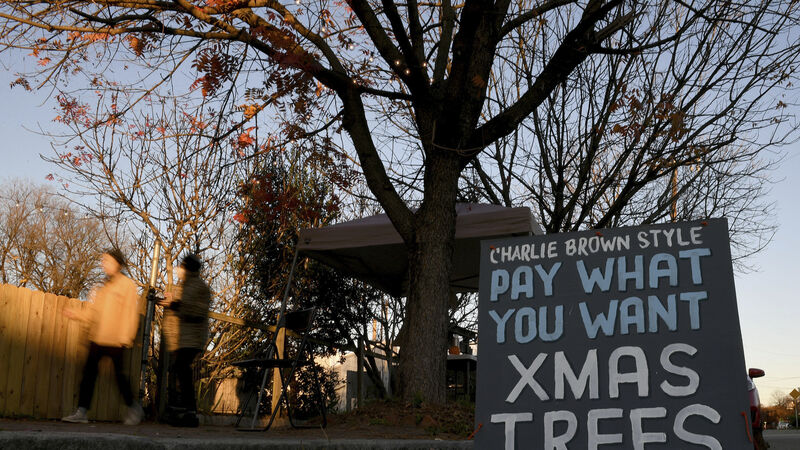Scrawny Christmas trees lift spirits and raise funds for school

A man has raised money for a school in the US that provides scholarships for students from an impoverished area by selling scrawny-looking Christmas trees.
Frank Pichel’s wild pine trees resemble the droopy, pitiful tree made famous in the 1965 children’s animated classic A Charlie Brown Christmas.











